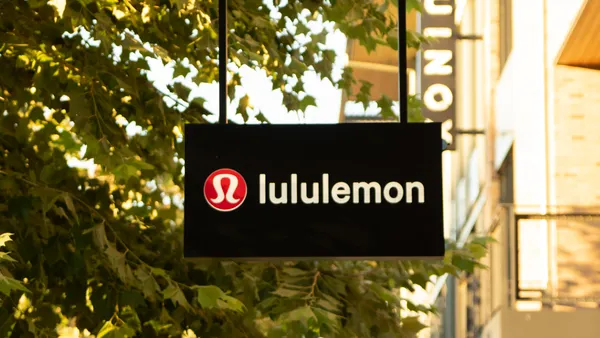Dive Brief:
-
July retail sales rose 0.6% from June 2019 and 3.4% above last year, according to the U.S. Department of Commerce's latest monthly report on the trade. Sales at nonstore retailers (mostly e-commerce) rose 2.8% from June and 16% year over year, a strong showing probably due in part to Amazon's Prime Day, according to a note from Wells Fargo economists emailed to Retail Dive.
-
Performance was uneven among sectors. Apparel and accessories sales rose 0.8% from June but fell 2.4% over last year; department store sales rose 1.2% from June but tumbled 4.7% year over year; and furniture and home goods stores saw sales rise 0.3% from June but remained flat over the year.
-
The National Retail Federation used the government numbers for its own analysis later in the day, finding that July retail sales (excluding auto, gas stations and restaurants) rose 0.9% seasonally adjusted from June and 5.6% unadjusted year over year. The NRF deemed July a month of "strong gains" but warned that stock market jitters and tariffs "could lead to caution in consumer spending."
Dive Insight:
The American consumer came through in July, and the Commerce Department's report provided a welcome respite in a week rattled by a plummeting stock market and ongoing tariff woes.
While the Trump Administration this week delayed many threatened tariffs on consumer goods until Dec. 15, reportedly to spare shoppers and retailers pain at the holidays, many tariffs remain on schedule to kick in Sept. 1.
"Households are in good shape with spending and that should continue as long as the labor market remains healthy," NRF Chief Economist Jack Kleinhenz said in a statement. "But it's important to remember that today's data is looking backward at what was happening a month ago. The impact of volatile financial markets and increased trade tensions in recent weeks may put a wind of caution in consumer spending as we move forward in 2019."
Wells Fargo's economics group analysts issued the same warning, noting some already emerging chinks in consumers' armor. They also called out gains as "broad-based with ten of thirteen categories seeing an increase in sales over the month."
Indeed, consumer confidence in the U.S. as measured by the Refinitiv/Ipsos Primary Consumer Sentiment Index for August fell 1.9 points month over month and 2.1 points year over year, to 60.6, according to their report emailed to Retail Dive. If that worsens, the tariff delay may not be much help.
"July retail sales are the latest indication that the consumer is alive and well. But, consumer confidence has come off the boil recently, suggesting caution among consumers," Wells Fargo Senior Economist Tim Quinlan and Economic Analyst Shannon Seery wrote. "The recent escalation in the trade war positions consumers directly in the cross fire, and, while the delay of tariffs on about $155 billion of Chinese imports means consumers may not feel it in their wallets until after the holiday season, if confidence is hit, it may curtail spending sooner."














